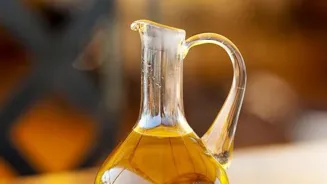Unveiling the Truth About Olive Oil: Is It Truly the Ultimate Cooking Oil? Dive into 8 facts to discover the reality
For years now, olive oil has been touted as the gold standard of cooking oils, a heart-healthy
elixir adding flavor and goodness to our desi meals. But is it really that good? Is the hype justified, or are there other contenders worthy of a spot in your kitchen cabinet?
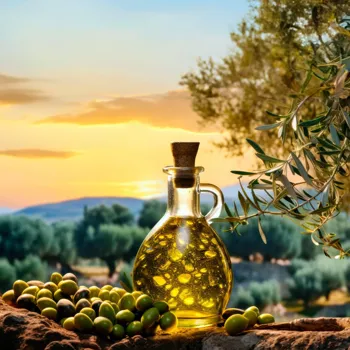
Well, let's dive deep into the facts, shall we? We'll explore eight key aspects of olive oil to help you decide if it truly deserves the title of 'healthiest cooking oil' for your needs and your family.
The Good Fats Factor: A Monounsaturated Marvel
One of the biggest reasons olive oil gets so much love is its high concentration of monounsaturated fatty acids (MUFAs). These are the "good" fats, the kind that can actually help lower your "bad" LDL cholesterol levels, reducing your risk of heart diseases and strokes.
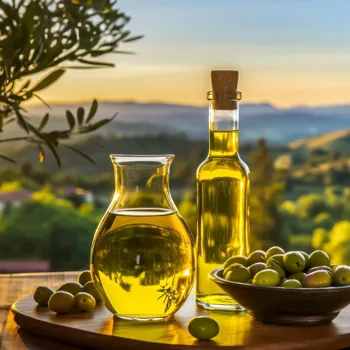
Think of MUFAs as tiny superheroes fighting off the villains that clog up your arteries. Unlike saturated fats, which can raise cholesterol, MUFAs are your heart's best friend. This is especially important for us Indians, given our predisposition to heart ailments.
So, incorporating olive oil can be a simple and tasty way to give your heart a little extra TLC. Remember, not all fats are created equal, and MUFAs are definitely the good guys! The higher the MUFA content, the better it is for your health.
Polyphenol Power: Antioxidants to the Rescue
Olive oil isn't just about good fats; it's also packed with polyphenols, powerful antioxidants that fight inflammation and protect your cells from damage. Think of them as tiny bodyguards, shielding you from the harmful effects of free radicals.
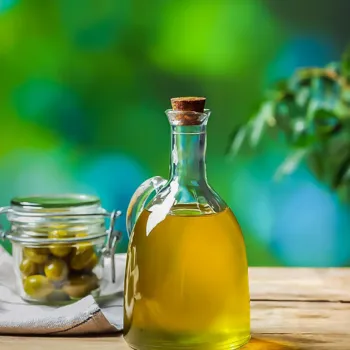
These free radicals are unstable molecules that can contribute to aging, chronic diseases, and even cancer. Polyphenols neutralize these threats, promoting overall health and well-being.
Studies have shown that olive oil's polyphenol content can help improve brain function, boost immunity, and even reduce the risk of certain types of cancer.
So, when you drizzle olive oil on your salad or use it for cooking, you're not just adding flavor, you're also giving your body a dose of these amazing health boosters. Remember to choose extra virgin olive oil for the highest concentration of polyphenols.
Inflammation Fighter: Taming the Fire Within
Chronic inflammation is linked to a host of health problems, from arthritis to heart disease. Olive oil, thanks to its oleocanthal content (a natural anti-inflammatory compound), can help soothe this internal fire.
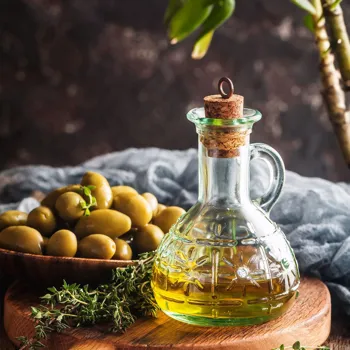
Oleocanthal works in a similar way to ibuprofen, a common anti-inflammatory medication, but without the potential side effects. Regularly consuming olive oil can help reduce inflammation throughout your body, protecting you from a wide range of diseases.
This is particularly beneficial for those suffering from joint pain, digestive issues, or other inflammatory conditions. So, making olive oil a part of your daily diet is like giving your body a gentle, natural anti-inflammatory treatment.
It's a small change that can make a big difference in your overall health and well-being.
Cooking Temperature Considerations: Not All Olive Oils Are Created Equal
Now, here's a crucial point: not all olive oils are suitable for high-heat cooking. Extra virgin olive oil, with its delicate flavor and high polyphenol content, has a lower smoke point.
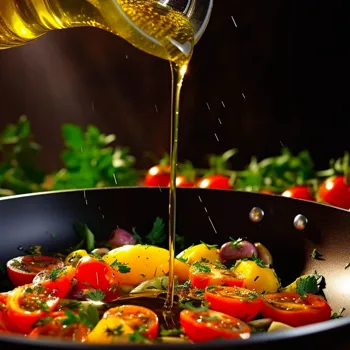
That means it can break down and lose its health benefits when heated to high temperatures, even releasing harmful compounds. For deep frying or high-heat sautéing, refined olive oil or light olive oil are better choices, as they have higher smoke points. However, they also contain fewer nutrients.
Extra virgin olive oil is best used for drizzling on salads, dipping bread, or light sautéing at lower temperatures. Choosing the right type of olive oil for your cooking method is key to maximizing its health benefits and avoiding harmful byproducts. So, read the label carefully and choose wisely!
Calorie Conscious: Everything in Moderation, Boss!
While olive oil is undoubtedly healthy, it's still a fat, and fats are high in calories. Consuming too much olive oil, even the extra virgin kind, can lead to weight gain. Remember, moderation is key to a balanced diet. You don't need to drown your food in olive oil to reap its health benefits.
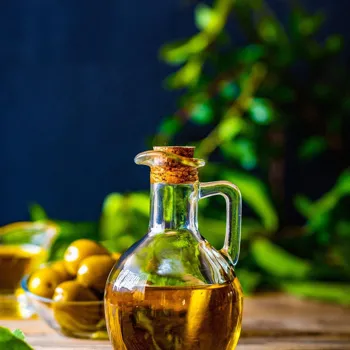
A tablespoon or two a day is usually sufficient. Be mindful of your overall calorie intake and adjust your olive oil consumption accordingly. Think of it as a healthy addition to your diet, not a replacement for other nutritious foods.
Combine olive oil with plenty of fruits, vegetables, and whole grains for a well-rounded and balanced meal plan. A little goes a long way when it comes to olive oil, so use it wisely and enjoy its benefits without overdoing it.
The "Made in India" vs. Imported Debate: Does Origin Matter?
You'll find both imported and "Made in India" olive oils in the market. While traditionallly India does not produce olive oil, the growing popularity and demand has sparked local production. The quality can vary, so look for reputable brands that adhere to quality standards.
Imported olive oils, especially those from Mediterranean countries like Spain, Italy, and Greece, are often considered superior due to established production practices and stricter regulations.
However, locally produced olive oils can be a good option if you're looking to support local businesses and reduce your carbon footprint. Do your research, read reviews, and choose a brand that you trust, regardless of its origin.
The most important thing is to ensure that the olive oil you're buying is authentic and of good quality, whether it's from across the seas or from closer to home. Check for labels that indicate origin and quality certifications to make an informed decision.
Price Point: Is the Investment Worth It?
Olive oil, especially extra virgin olive oil, can be more expensive than other cooking oils. But consider it an investment in your health. The health benefits of olive oil, particularly its MUFA and polyphenol content, can outweigh the higher cost.

Think of it as spending a little extra on your well-being. However, don't feel pressured to buy the most expensive olive oil on the market. There are many affordable options that still offer significant health benefits.
Compare prices, read labels, and choose an olive oil that fits your budget without compromising on quality. Remember, a little olive oil goes a long way, so a bottle can last for quite some time. Ultimately, the decision to invest in olive oil depends on your individual priorities and budget.
If you prioritize your health and are willing to spend a bit more, olive oil is a worthy investment.
Alternatives to Consider: Exploring Other Healthy Options
While olive oil boasts numerous health benefits, it's not the only healthy cooking oil out there. Groundnut oil, mustard oil, and rice bran oil are all traditional Indian cooking oils that offer their own unique advantages.
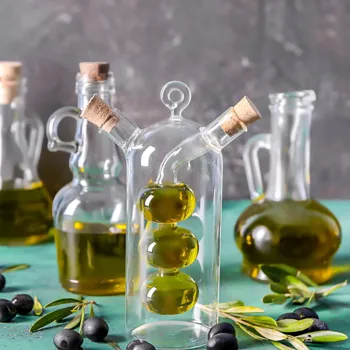
Each oil has its own nutritional profile and smoke point, so it's worth exploring these options to find the best fit for your cooking style and health needs. Combining different oils in your diet can provide a wider range of nutrients and antioxidants.
Don't feel limited to just one oil; experiment with different options and find what works best for you. Remember, a balanced diet includes a variety of healthy fats, so embrace the diversity of cooking oils available and enjoy the benefits of each.
Ultimately, the "healthiest" cooking oil is the one that you enjoy using and that fits into your overall healthy lifestyle.
Ultimately, whether olive oil is the absolute healthiest depends on your individual needs and preferences.
But one thing is clear: it's a fantastic option to consider, offering a wealth of health benefits and adding a delicious touch to your cooking. So, go ahead, give it a try and see if it earns a permanent place in your kitchen!
AI Generated Content. Glance/InMobi shall have no liability for the content